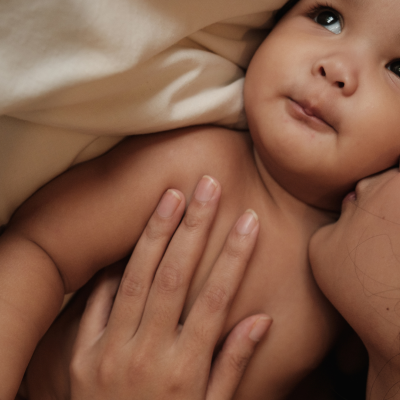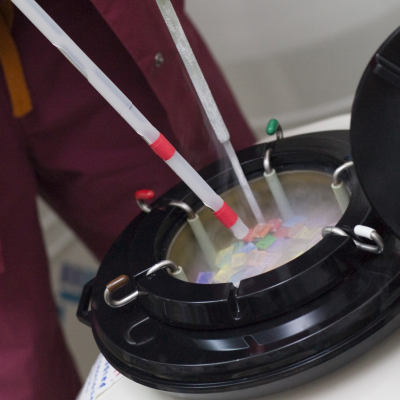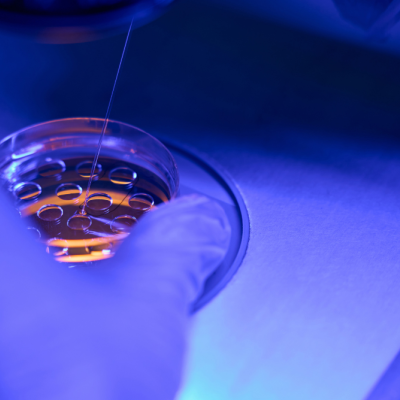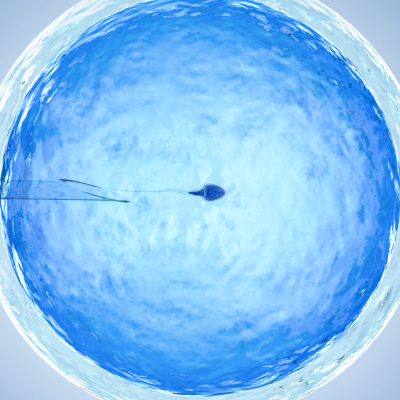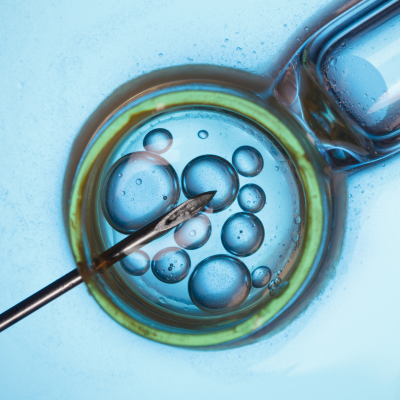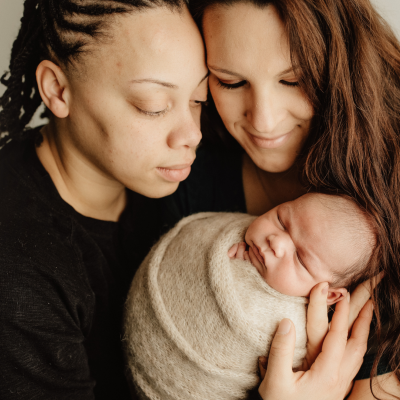LGBTQ Fertility in Los Angeles: Inclusive & Personalized Family-Building Care
Tired of feeling like your family dreams don’t fit the traditional mold? We’re here to change that.
At our Los Angeles fertility clinic, we proudly support LGBTQ+ individuals and couples who want to start or grow their families.
Whether you’re exploring IUI with donor sperm, reciprocal IVF, egg donation, or surrogacy, our care team will guide you every step of the way. We believe everyone deserves the chance to become a parent, and we’re here to help you make that happen.
Fertility Options for LGBTQ+ Individuals and Couples
We provide a full range of fertility services tailored to your identity, your goals, and your biology. You don’t have to fit into a box to build your family. We’ll create a treatment plan that fits you.
Fertility Options for Lesbian Couples and Individuals Assigned Female at Birth
For lesbian couples or single people assigned female at birth, we offer several paths to pregnancy:
- IUI with donor sperm (intrauterine insemination).
- IVF with donor sperm.
- Reciprocal IVF, where one partner provides the eggs and the other carries the pregnancy.
We’ll help you decide which option is best based on your health history, fertility testing, and personal preferences. You can use an anonymous or known sperm donor, and we’ll guide you through every step, from selecting a donor to timing the menstrual cycle for insemination or embryo transfer.

Fertility Options for Gay Couples and Individuals Assigned Male at Birth
If you and your partner are both assigned male at birth, you can have a biological child through:
- Egg donation from a screened donor.
- IVF using one or both partners’ sperm.
- Gestational surrogacy, where a carrier (not genetically related) carries the pregnancy.
Our team assists with everything, from semen analysis to selecting a gestational carrier and legal agreements to protect both partners’ parental rights.
Fertility Options for Transgender and Non-Binary Individuals
Your gender identity doesn’t limit your path to parenthood. Whether you’re pre-transition, in transition, or post-transition, we offer inclusive, affirming fertility options:
- Fertility preservation, including sperm or egg freezing before hormone therapy or surgery.
- IVF or IUI using your own or donated gametes.
- Gestational carriers, if needed.
We understand the nuances of transgender fertility care and will never ask you to choose between your identity and your future family.

Inclusive

Options

Honored
What to Expect: Your Fertility Journey with Us
We make the process clear, supportive, and personalized. No jargon. No judgment. Just guidance and care.
Initial Consultation & Fertility Testing
Your journey starts with a 1-on-1 consultation. We’ll:
- Review your medical and family history
- Discuss your family goals
- Run fertility tests like hormone panels, semen analysis, and ultrasounds
You’ll leave your first visit with clarity, confidence, and a roadmap forward.
Creating a Personalized Treatment Plan
Every family-building journey is different. That’s why we never offer one-size-fits-all plans. Your care team will create a treatment plan that takes into account:
- Your relationship structure and anatomy
- Use of donor sperm, donor eggs, or a gestational carrier
- Fertility goals and timeline
- Insurance coverage and financing
We’ll explain everything clearly (costs, steps, timelines), so you know exactly what to expect.
Choosing Donors & Surrogates (If Needed)
Need a donor or carrier? We’ll help you build the team that brings your baby to life.
- Choose from a wide pool of egg donors and sperm donors, both anonymous and known.
- Match with a vetted gestational surrogate if needed.
- Get legal support to ensure all parental rights are protected.
You’ll never be left guessing. We walk with you through all the emotional and logistical decisions.

Fertility Treatments & Procedures
This is where things start moving – monitoring, medications, timing, and procedures. Every step is personalized and closely managed by your care team to give you the best possible outcome. You’ll know what’s happening, when, and why.
Why Choose Our Clinic for LGBTQ Fertility Care in Los Angeles?
We’ve helped thousands of LGBTQ+ individuals and couples grow their families, and we’d be honored to help you.

Book Your LGBTQ Fertility Consultation in Los Angeles
No one teaches you how to navigate fertility as an LGBTQ+ person, especially in a world where most clinics still center heteronormative paths to parenthood. That’s why we built something different. A space where your identity is never questioned. Where your relationship is fully seen. And where the science, support, and care are aligned with your story.
If you’re dreaming of growing your family, we invite you to take one simple, brave step: book your first consultation with us. We’ll meet you there – with clarity, compassion, and a plan made just for you
Real Stories From Our LGBTQ+ Patients
LGBTQ Fertility FAQs
Which fertility treatment is most suitable for a same-sex female couple: IUI, IVF, or reciprocal IVF?
It depends on your goals, age, and fertility health. IUI with donor sperm is often the least invasive and most affordable option, but IVF and reciprocal IVF offer higher success rates and more shared biological involvement for couples. Reciprocal IVF allows one partner to provide the eggs and the other to carry – a unique option for many lesbian couples.
How do we decide which partner provides eggs or carries, and how much of that is based on medical history?
The decision can be emotional, personal, or medical, and sometimes all three. Fertility testing, age, egg reserve, and overall reproductive health will help guide what’s medically optimal. But your own preferences, gender identity, and how you envision parenthood also play a role. We help you weigh it all with clarity and support.
What biological family-building options are available for gay male couples?
Gay couples can have biological children through a combination of egg donation and gestational surrogacy. One or both partners provide sperm, which is used to fertilize eggs from a donor. The resulting embryo is transferred to a gestational carrier (someone who carries the pregnancy but has no genetic link to the child).
Can transgender and non‑binary individuals preserve fertility or conceive after starting hormone therapy or surgery?
Yes, but timing is key. Fertility preservation (egg or sperm freezing) is ideal before starting hormone therapy or surgery. However, in some cases, fertility may still be possible after pausing hormones or depending on your anatomy. Our team will walk you through what’s medically realistic based on where you are in your transition.
How long does the journey typically take, from initial consultation to pregnancy?
Timelines vary depending on your treatment plan. A simple IUI cycle might take 1–2 months. IVF or reciprocal IVF often takes 3–6 months including testing, medication, and embryo transfer. Surrogacy or donor coordination can extend that timeline. We’ll give you a detailed plan after your initial consultation – no surprises.
Is it possible to use a known sperm donor? What are the legal implications in California?
Yes, known donors are common, but we strongly recommend legal contracts in place before insemination. California law allows known donors, but without legal agreements, parental rights can become complicated. We connect you with LGBTQ-friendly legal professionals to ensure everything is protected and clear from the start.
How much do fertility treatments for LGBTQ+ cost?
Costs depend on the path. Please read our breakdown of fertility treatment cost for more information.
Does insurance cover fertility treatments for LGBT+?
Some insurance plans do cover testing, IUI, or IVF, but coverage often depends on your employer and whether infertility is diagnosed. California has partial fertility mandates, but LGBTQ+ patients can face barriers. Our team will help you review your plan and advocate for your care.
Is there a grant for fertility treatments for LGBT+?
Yes. There are LGBTQ-specific fertility grants and nonprofit programs that provide financial help. Organizations like Men Having Babies, Family Equality, and BabyQuest offer support based on need and family structure. We can guide you through applications and point you to the right resources.

